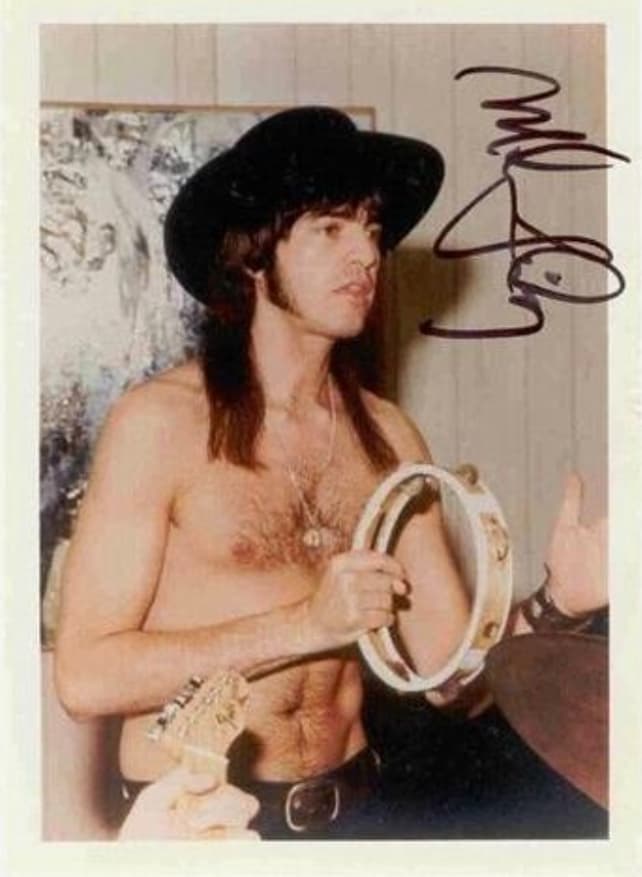
An elegy to time, a whisper of what was, and a look back at the beginning of the end.
There are certain songs that, with the first gentle note, transport you back to a specific time and place. They don’t just evoke a memory; they are a memory, a soundtrack to a chapter of your life. Mark Lindsay’s “Bookends” is one such song, a bittersweet melody that, for many, closes the chapter on an era of youthful exuberance and heralds the beginning of a more reflective, somber period. Though it may not have charted with the fiery success of his work with Paul Revere & the Raiders, this beautiful, introspective ballad holds a special place in the hearts of those who came of age in the late 1960s and early 1970s. Released in 1970 on the album Silver Bird, “Bookends” stands as a profound marker in Lindsay’s career, representing a pivotal shift from the garage-rock, high-energy antics of The Raiders to a more mature, contemplative solo artist.
The story behind the song is one of evolution and a search for a new artistic identity. As the 1960s waned, the frenetic, pop-infused sound of Paul Revere & the Raiders began to give way to new musical styles. Tensions within the band were also starting to show, and it was becoming clear that Mark Lindsay, the charismatic frontman and voice of the group, was destined for a different path. Columbia Records A&R head Jack Gold recognized Lindsay’s potential as a solo artist, envisioning him as an “adult vocalist.” While Lindsay initially resisted, wanting to craft his own original ballads, the groundwork was laid for a new musical journey. “Bookends” was co-written by legendary arranger and composer Artie Butler and producer Jerry Fuller, both of whom played a significant role in shaping this new phase of Lindsay’s career. The song itself is an unapologetic homage to the lush, sophisticated pop arrangements of Burt Bacharach and Hal David, a sound that was at once timeless and deeply of its era. With its intricate, melodically challenging structure and a gorgeous horn solo, it was a world away from “Kicks” or “Hungry,” and it showcased a depth and vulnerability in Lindsay’s voice that was simply breathtaking.
The meaning of “Bookends” is a poignant meditation on the passage of time. The title itself suggests a closing, a framing of a past period. It’s a song that speaks to the moments that define us—the hills we climbed, the rhymes we sang, the curtains of the sky. It’s a reflection on innocence lost and the quiet realization that the carefree days of youth are a memory to be cherished, but one that can never be fully recaptured. The lack of a traditional verse-chorus structure only adds to its elegiac quality, as if it’s a stream of consciousness, a whispered recollection of a time that feels both vivid and distant. For those who were living through that transition, from the idealism of the 60s to the more complex realities of the 70s, “Bookends” resonated deeply. It wasn’t just a song; it was a feeling. It was the feeling of looking back at a whirlwind of action and excitement and realizing that you were standing at the end of a chapter, with new, uncertain pages ahead. The song is a gentle reminder that while we can’t go back, the memories of those times are the very things that hold our story together, like bookends on the shelf of our lives.
The song appeared on the album Silver Bird, which was released in 1970. The album was a clear departure for Lindsay, fully embracing the adult-contemporary sound that Gold had envisioned. The track “Bookends” served as a perfect closing statement for the album, a final, reflective moment after a collection of songs that explored new sonic territory. Though it wasn’t a major chart success, its importance lies not in its commercial performance, but in its artistic significance. It was a bridge from one era to another, a testament to Mark Lindsay’s versatility and his willingness to grow as an artist. For fans of Paul Revere & the Raiders, “Bookends” may have been a surprise, but it was a welcome one, a sign that the voice they had loved for years was capable of so much more. It’s a song for quiet nights and thoughtful moments, a beautiful and melancholic piece that continues to resonate with anyone who has ever looked back on their past and felt the gentle ache of nostalgia.